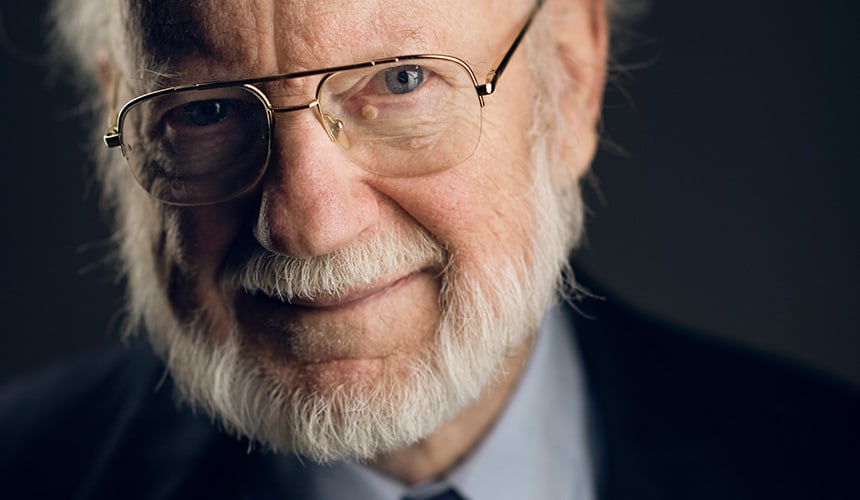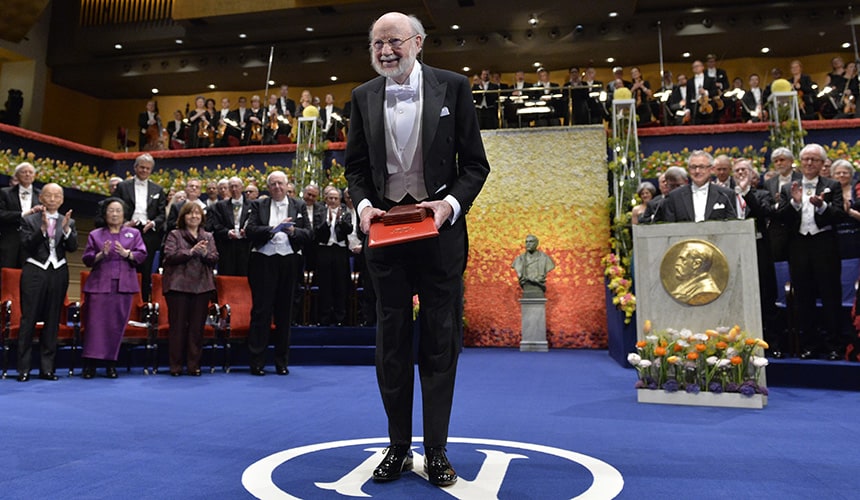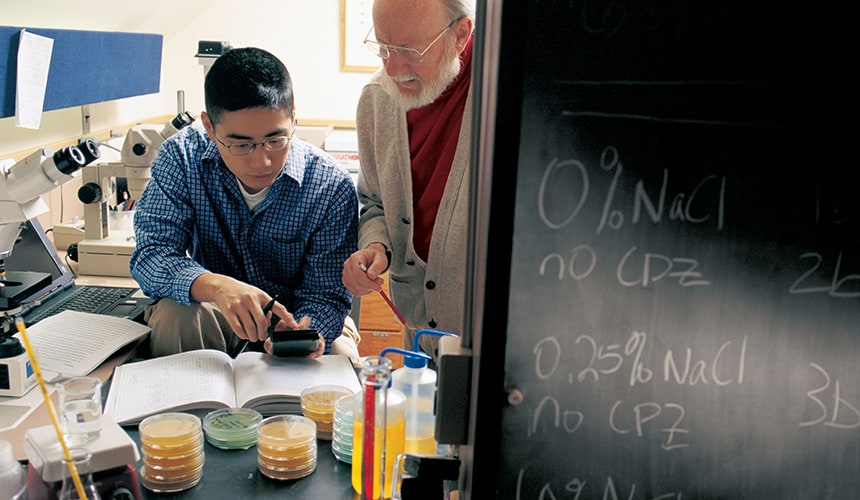William Campbell
The Role of Chance
William Campbell MS1954, PhD1957 never meant to come to Wisconsin. In fact, much of his life seemed unintended — he hadn’t really meant to study parasites, to work in tropical illness, to seek out discoveries that might cure people’s ailments. But by luck and happenstance, he did all those things, and ended up discovering the drug ivermectin and winning a Nobel Prize.
“It happened by chance,” he says, “and throughout my life, I’ve been impressed as to the role of chance in the big moves in our lives.”
Campbell grew up in County Donegal in Ireland, and as a high school student, he went to an agricultural show and tucked a brochure on animal illnesses in his pocket. Years later, while at Trinity College in Dublin, he was thinking that maybe he should study medicine when a teacher made him think of that brochure again.
“The professor, Desmond Smith, was a parasite guy,” Campbell says. “It immediately crystallized or focused my interest. I often think how lucky a student can be when you encounter a professor who changes your life. I had originally come to study medicine, but because of him, at the last minute, I changed my mind and switched to natural science and studied parasitology and never stopped.”
Chance intervened again after Campbell had finished his bachelor’s degree — chance and Professor Arlie Todd of the UW’s Department of Veterinary Science. Todd was a parasitologist, and he was looking for likely graduate students. He wrote to Smith at Trinity, and Smith suggested three names.
“I was the most naïve, uncultured, country guy compared to the other two,” Campbell says. But both of the others married and decided not to take an overseas graduate program. Campbell, not sure what else to do, crossed the Atlantic.
Under the guidance of Todd and Professor Chuck Herrick, Campbell earned his master’s degree and doctorate, and he was introduced to the concept of One Health — the idea that humans are animals and so there’s little difference between the practice of human and veterinary medicine. Doctorate in hand, Campbell went to work in drug development for the pharmaceutical firm Merck. He enjoyed seeing how different chemicals affected the behaviors and life cycles of parasites.
The work was always interesting but seldom exciting. “In that business, you discover drugs all the time,” he says. “You realize that the chances are that it’s going to be exciting today, but it’s going to totally fall apart tomorrow. It’s going to be useless. It’s going to be unstable or toxic or stinky or whatever.”
But not all of his discoveries fell apart. He and his fellow scientists were looking for a treatment for heartworm in cattle. The drug they developed, ivermectin, soon proved effective at preventing heartworm in dogs and ferrets and horses, too. And, later, it found an even more exciting use: it could attack the parasites that cause onchocerciasis — or river blindness — in humans.
Before the late 1980s, about 40 million people were infected with onchocerciasis in tropical Africa and Latin America, and as many as 600,000 of them ended up blind. But ivermectin destroyed the filarial worm that caused the disease. With Campbell’s urging, Merck donated the drug to developing countries. About 25 million people are now treated with ivermectin each year, preserving the sight of thousands of individuals. The drug has proved so successful that in 2015, Campbell and Satoshi Omura shared the Nobel Prize in Physiology and Medicine for discovering it.
Campbell credits the achievement not, primarily, to his own effort but to the good fortune of working with the right colleagues.
“Teamwork was the thing,” Campbell says. “Nowadays it is common for science to advance through teamwork. When it happens, each one is indebted to all the others.”
 84° F
84° F

